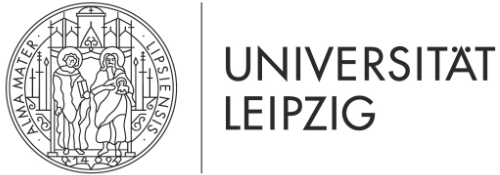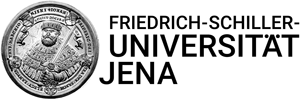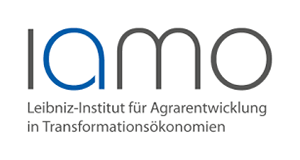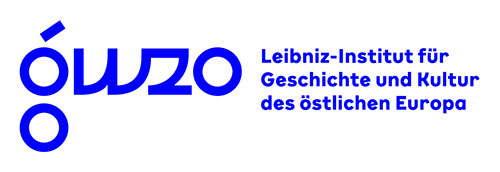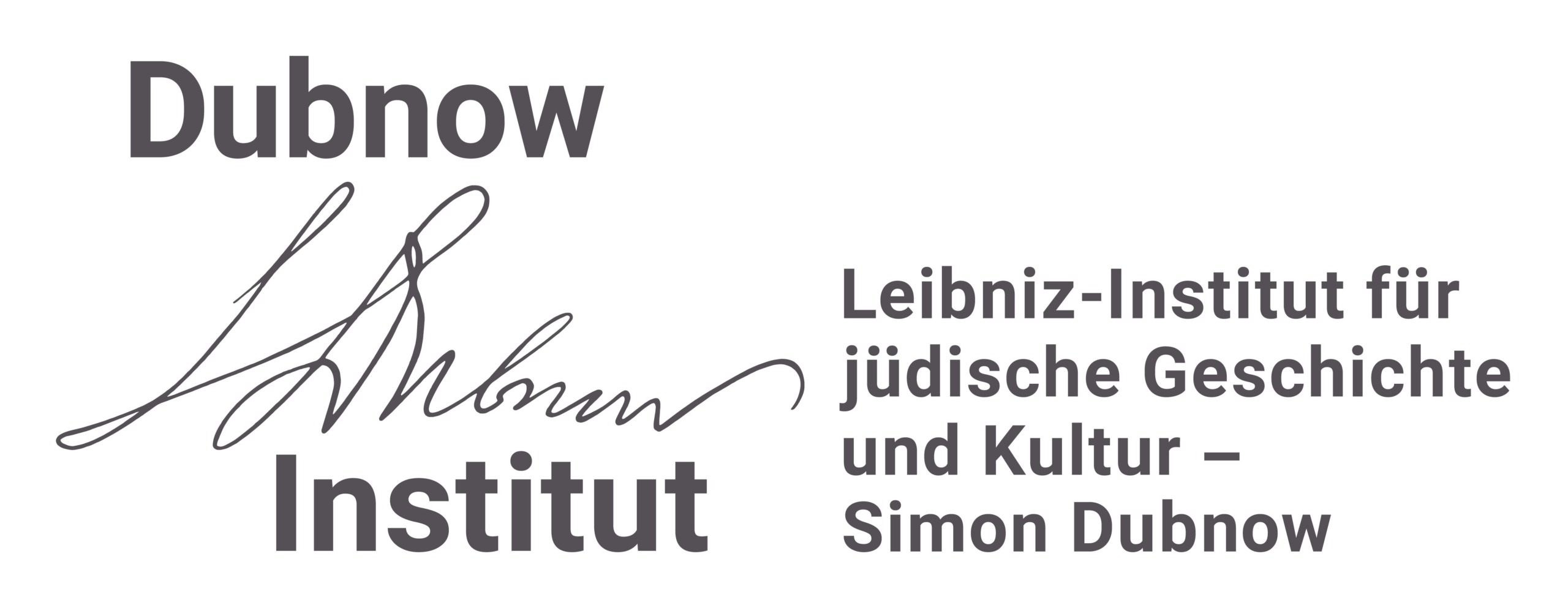The nine partner institutions that form the Leibniz ScienceCampus EEGA:
EEGA Members
Leibniz Institute for Regional Geography, Leipzig (IfL)
The IfL is the only research institute for Geography in Germany which is not attached to a university. The research carried out at the Leibniz Institute for Regional Geography is concerned with spatial structures and current developments that have a spatial impact in Europe, as well as with the theoretical and historical foundations of Regional Geography. Under the heading »New Geographies of Europe« the researchers analyse ongoing processes, particularly in Central and Eastern Europe. An important area of the institute´s work is the presentation of research findings for specialist and more general audiences.
The institute was founded in its current form in 1992; its beginnings reach back to 1896. It has been at its current site at Leipzig-Paunsdorf since 1996; the organization’s name was extended in 2003, becoming the Leibniz Institute for Regional Geography.
The IfL is organized in a matrix structure of departments and research areas, namely the production of space: polarisation and peripheralisation, the production of space: state and society, the history of geography, and geovisualisation.
Contact:
Leibniz Institute for Regional Geography, Leipzig (IfL)
Schongauerstraße 9, 04328 Leipzig
Contact Person:
Prof. Dr. Sebastian Lentz
Phone +49 341 600 55-107
s_lentz@leibniz-ifl.de
https://leibniz-ifl.de/
Leipzig University (UL)
The Leipzig Research Centre Global Dynamics (ReCentGlobe) is a central institution of the University of Leipzig. ReCentGlobe is dedicated to the study of globalisation projects in the past and present in a broad interdisciplinary cooperation. More than 200 staff members from various faculties and subjects work together at the centre. They cooperate with the Graduate School Global and Area Studies in the training and further education of young academics. The centre has several labs for global cooperation, digital humanities, science communication and knowledge transfer.
Globalisation is the most widespread social diagnosis today. However, it is not an invisible hand behind the backs of actors, but results from the interaction of many different actors in all parts of our planet to globalise the world according to their respective ideas and interests.
ReCentGlobe examines these globalisation projects in the present and the past comparatively across the borders of continents and oceans.
These globalisation projects are changing the world and bringing individual societies into an interdependence that can no longer be resolved. New global challenges are constantly being identified and require new constellations of actors to overcome them.
This gives rise to the overarching research questions of the centre:
- What are the consequences of different globalisation projects moving closer together as a result of accelerated communication and transport possibilities?
- How does the entanglement with different globalisation projects affect the fragmentation and cohesion of societies?
- How do we deal with the tension between universalist narratives of the unity of the world, which suggest that the respective globalisation project allows the world to be modelled predominantly according to one’s own ideas, and the limited experiences and expectations that lie behind these universalist narratives?
These are the questions that ReCentGlobe’s research areas address by placing different dimensions of society, world regions and actors at the centre of their investigations.
Contact:
Leipzig Research Centre Global Dynamics (ReCentGlobe)
Nikolaistraße 10
04109 Leipzig
Contact Person:
Prof. Dr. Matthias Middell
E-mail: middell@uni-leipzig.de
Tel.: +49 341 97-30232
https://recentglobe.uni-leipzig.de/
Leibniz Institute of Agricultural Development in Transition Economies, Halle (Saale) (IAMO)
The Leibniz Institute of Agricultural Development in Transition Economies (IAMO) analyses economic, social and political processes of change in the agricultural and food sector, and in rural areas. The geographic focus covers the enlarging EU, transition regions of Central, Eastern and South Eastern Europe, as well as Central and Eastern Asia.
The Leibniz Institute of Agricultural Development in Transition Economies (IAMO) performs basic and applied research in the agricultural and food sector as well as rural areas of the formerly centrally planned economies of Europe and Asia against the context of international developments. This research approach is unique worldwide. The institute makes a significant contribution to describing and improving the living conditions of the people and the economic development of these regions. Based on research results, the staff develops recommendations for sustainable development in the agricultural and food sector and for promoting rural areas.
IAMO activities, inter alia through teaching and under the umbrella of WissenschaftsCampus Halle – Plant-based Bioeconomy (WCH), are closely linked to the Institute for Agricultural and Food Sciences and the Economic Sciences Department of Martin Luther University Halle-Wittenberg.
Contact:
Leibniz Institute of Agricultural Development in Transition Economies, Halle (Saale) (IAMO)
Theodor-Lieser-Str. 2, 06120 Halle (Saale)
Contact Person:
Prof. Dr. Thomas Glauben
Phone +49 345 2928-200
glauben@iamo.de
http://www.iamo.de/
The Leibniz Institute for the History and Culture of Eastern Europe (GWZO)
The Leibniz Institute for the History and Culture of Eastern Europe (GWZO) carries out comparative historical and cultural research on the region bordering the Baltic, the Black, and the Adriatic Seas from the Early Middle Ages to the present. There are currently around 50 research scholars ssociated with the Institute conducting work both in Germany and abroad from across the range of humanities dis ciplines. In its activities, the Institute relies on a dense network of cooperative partnerships with Eastern and Central European as well as international research organizations.
Contact:
The Leibniz Institute for the History and Culture of Eastern Europe (GWZO)
Specks Hof (Eingang A), Reichsstr. 4-6, 04109 Leipzig
Contact Person:
Prof. Dr. Maren Röger
Phone +49 (0) 341 97 35 560
maren.roeger@
https://www.leibniz-gwzo.de/de
Institute of Geography at Friedrich Schiller University Jena (IfG)
The Institute of Geography at Friedrich Schiller University of Jena is one of the most important geographical institutes in the German-speaking world. The research activities of the Department of Economic Geography cover four interrelated topics: urban economies and neighbourhood development, knowledge-based urban and regional development, global business interconnections and regional development dynamics as well as geographic real estate market research.
The institute’s research is carried out along three lines: first, the »empirical analysis«, which includes the application of both quantitative and qualitative social-empirical methods for the collection and description of relevant facts from a spatial perspective. Secondly, the »theoretical-conceptual development«, which leads to a continuous development of concepts and theories. Thirdly, the »derivation of recommendations for action« which provides for the identification of good and best practices, as well as the preparation of action guides for policy makers and business decision-makers.
The beginnings of geography at the University of Jena date back to the 18th century. The current institute with its research profiles was newly established between 1992 and 1995 as a full institute. With seven professorships the entire range of geography is represented. Currently about 800 students are enrolled at the Institute of Geography.
Contact:
Friedrich Schiller University Jena (FSU)
Institute of Geography at Friedrich Schiller University Jena (IfG)
Löbdergraben 32, 07743 Jena
Contact Person:
Prof. Dr. Sebastian Henn
Phone +49 341 26303234
sebastian.henn@uni-jena.de
www.geographie.uni-jena.de
Education and research with a 500-year-old tradition: Martin Luther University Halle-Wittenberg (MLU) offers a wide range of academic subjects in the areas of humanities, social sciences, natural sciences and medicine. The oldest and largest university in Saxony-Anhalt was created in 1817 when the University of Wittenberg (founded in 1502) merged with Friedrichs University Halle (founded in 1694). Today the university has around 20,000 students and 340 professors.
MLU’s academic profile in the field of the humanities is shaped by the core research areas “Enlightenment – Religion – Knowledge” and “Society and Culture in Motion. Diffusion – Experiment – Institution”. The university’s core scientific research is in “Materials Science – Nanostructured Materials” and “Biosciences – Structures and Mechanisms of Biological Information Processing”. Agricultural sciences also play a leading role and Halle’s university bears sole responsibility in Saxony-Anhalt for developing this academic profile. The Faculty of Medicine focuses on epidemiology, health and nursing research and research on signal transmission. Here nursing scientists conduct research on an equal footing with physicians. The Dorothea Erxleben Learning Centre is one of the largest teaching clinics for prospective medical professionals. In addition to its main academic focuses, the university offers a range of minor subjects, some of which are only offered in Germany at MLU.
As a member of the Central German University Alliance Halle-Jena-Leipzig, MLU cooperates closely with other universities, and with external research institutes and industries. This is visible at a local level on the Weinberg Campus, the second largest technology park in Eastern Germany. All of the university’s natural science institutes are concentrated here. They work in partnership with companies and major German research institutes, such as the Max Planck Society and the Fraunhofer-Gesellschaft. Halle’s university has a broad-reaching network of partner universities throughout the world.
Aleksander Brückner Center for Polish Studies (ABZ) at Martin Luther University Halle-Wittenberg (MLU) and Friedrich Schiller University Jena (FSU)
The Aleksander Brückner Center for Polish Studies, founded in 2012, is dedicated to the interdisciplinary research of both historical and present-day developments in Polish politics, society, language, and culture. It is a cooperative project of Martin Luther University, Halle-Wittenberg, and Friedrich Schiller University, Jena.
The Polish studies at the Center are devised as area studies on common subjects from the perspective of a variety of disciplines, and are designed to methodically foster a dialogue with other programs of area studies. The two endowed professorships for history and Slavic studies make it possible to combine the wealth and variety of expertise on the region within an international network. Three main research areas are the following: “Plural Polonity: Languages, Societies and Cultures”, “Configurations and Reconfigurations of Community and Society” and “Poland and its European and International Interconnections”. The Aleksander Brückner Center pursues an intensive exchange with numerous research institutes in Poland and in other countries that have been closely connected with Poland in the past and today. This serves to provide a foundation for the development of a multiperspective view of Poland linked into its European and international contexts.
The Aleksander Brückner Center for Polish Studies is supported by the Foundation for German-Polish Cooperation, the German-Polish Research Foundation, and the German Academic Exchange Service (DAAD). The Center has 15 employees as well as additional guest lecturers, projects assistants and persons receiving a scholarship.
Contact Person:
Prof. Dr. Yvonne Kleinmann
E-Mail: yvonne.kleinmann@geschichte.uni-halle.de
Tel.: +49 34555 24309
http://www.aleksander-brueckner-zentrum.org
Fraunhofer Center for International Management and Knowledge Economy (IMW)
Since 2016, the Fraunhofer Center Leipzig can look back over ten years of applied, socio-technical and socio-economic research and experience at the Leipzig location. The Fraunhofer economists develop scientifically sound solutions to the challenges of globalization to ensure the long-term success of clients and partners with a business and industry, research or society background.
People, their environment and the reality of their lives are at the centre of the institute’s international projects, networking activities, innovation projects and analyses. Founded as the Center for Central and Eastern Europe (MOEZ) in 2006, the institute consolidated its expertise and range of services in internationalization and knowledge economy under a new name, the Fraunhofer Center for International Management and Knowledge Economy, in 2015.
The institute and the minds that work there have proven expertise in the fields of internationalization, innovation and technology management, innovation funding, strategy development, the knowledge economy and research marketing. Around fifty full-time employees are currently working on projects for companies, particularly small and medium enterprises, along with projects within the context of the European Union’s Seventh Framework Programme, projects for the German Federal Ministry of Education and Research, the German Federal Ministry for the Environment, Nature Conservation, Building and Nuclear Safety, the German Federal Ministry for Economic Affairs and Energy and the Deutsche Bundesstiftung Umwelt (German Federal Foundation for the Environment)
Contact:
Fraunhofer Center for International Management and Knowledge Economy (IMW)
Martin-Luther-Ring 13, 04109 Leipzig
Contact Person:
Prof. Dr. Thorsten Posselt
Tel.: +49 341 231039-100
thorsten.posselt@moez.fraunhofer.de
www.imw.fraunhofer.de
Max Planck Institute for Social Anthropology, Halle (Saale) (MPI)
The Max Planck Institute for Social Anthropology is one of the world’s leading centers for research in socio-cultural anthropology. The guiding research areas are: the development of anthropological theory and comparative research into current social transformation processes, include those of urgent social relevance.
The Department „Resilience and Transformation in Eurasia“ specialises in regions of Europe and Asia which were until recently socialist, or which remain so to this day (e.g. China). It has investigated the consequences of the privatization of collective and state farms after socialism, along with a range of other topics in economic anthropology. It has also organized large-scale comparative investigations of the religious field in postsocialist conditions. Particular strengths lie in East-Central Europe, the Caucasus, Central Asia, Vietnam and Japan.
The MPI was established in 1999 by Chris Hann and Günther Schlee in Halle/Saale. Marie-Claire Foblets joined the Institute as its third Director in 2012. Fieldwork is an essential part of almost all projects. At present, some 150 researchers are working in different research areas for the MPI.
Contact:
Max Planck Institute for Social Anthropology, Halle (Saale) (MPI)
Advokatenweg 36
06114 Halle (Saale)
Contact Person:
Prof. Dr. Ursula Rao
E-Mail: office.rao@eth.mpg.de
Phone +49 (0) 345 29 27 101
http://www.eth.mpg.de/
Leibniz Institute for Jewish History and Culture – Simon Dubnow, Leipzig (DI)
The Leibniz Institute for Jewish History and Culture – Simon Dubnow (DI) is an interdisciplinary research institute. Its main focus lies on the investigation of Jewish history and culture in Central and Eastern Europe from the Early Modern Period to the present day. The work conducted by the institute adopts a European perspective, including also the spaces of Jewish emigration, especially Israel and America.
The DI is dedicated to the secular tradition of its namesake, the Russian Jewish historian Simon Dubnow (1860–1941), who acted as a cultural mediator between Eastern and Western European Jewry. At the DI, Jewish history is always regarded in the context of its non-Jewish environs and as a seismograph of general historical developments.
The research activities of the DI are divided into the three portfolios »Politics«, »Law«, and »Knowledge«. These orient themselves towards the methodologically renewed fields of political, legal, and diplomatic history, the history of migration and scholarship, as well as the classical canon of intellectual history and the history of ideas, moreover incorporating questions from the fields of material culture and the history of transfer and restitution. The research findings are disseminated to both a specialized audience as well as the interested public through a broad range of publications. These include among others the bilingual and internationally renowned Jahrbuch des Dubnow-Instituts/Dubnow Institute Yearbook; a book series; the essay series toldot; and the magazine Jüdische Geschichte & Kultur (Jewish History and Culture).
The Institute has been directed since April 2017 by Yfaat Weiss, Professor of Modern History, especially Jewish history, at Leipzig University and Professor of Jewish History at the Hebrew University Jerusalem.
Contact:
Leibniz Institute for Jewish History and Culture – Simon Dubnow (DI)
Goldschmidtstraße 28
04103 Leipzig
Contact Person:
Prof. Dr. Yfaat Weiss
E-Mail: weiss@dubnow.de
phone: +49 341 21735-50 (Secretary Marion Hammer)
https://www.dubnow.de/institut/aktuelles/
For further information on the EEGA Members, please click on the respective logo below.
